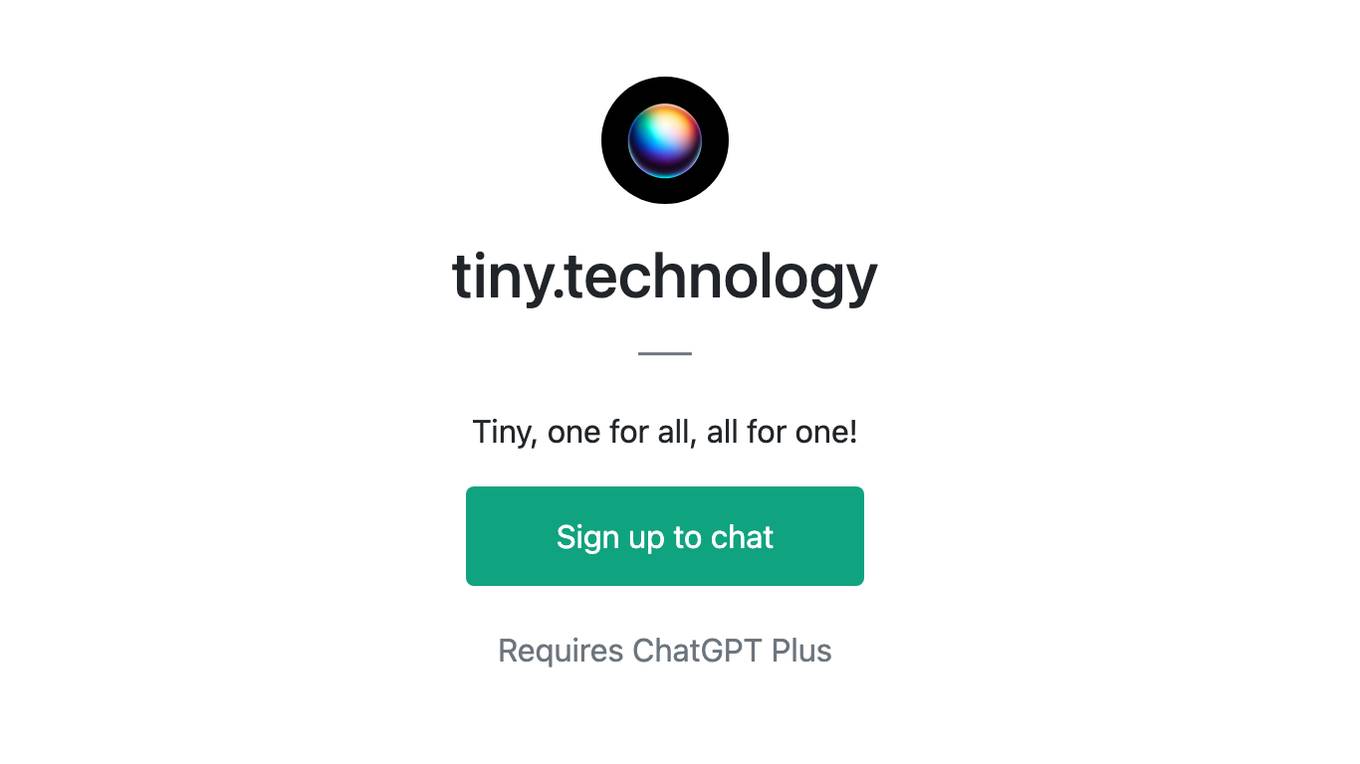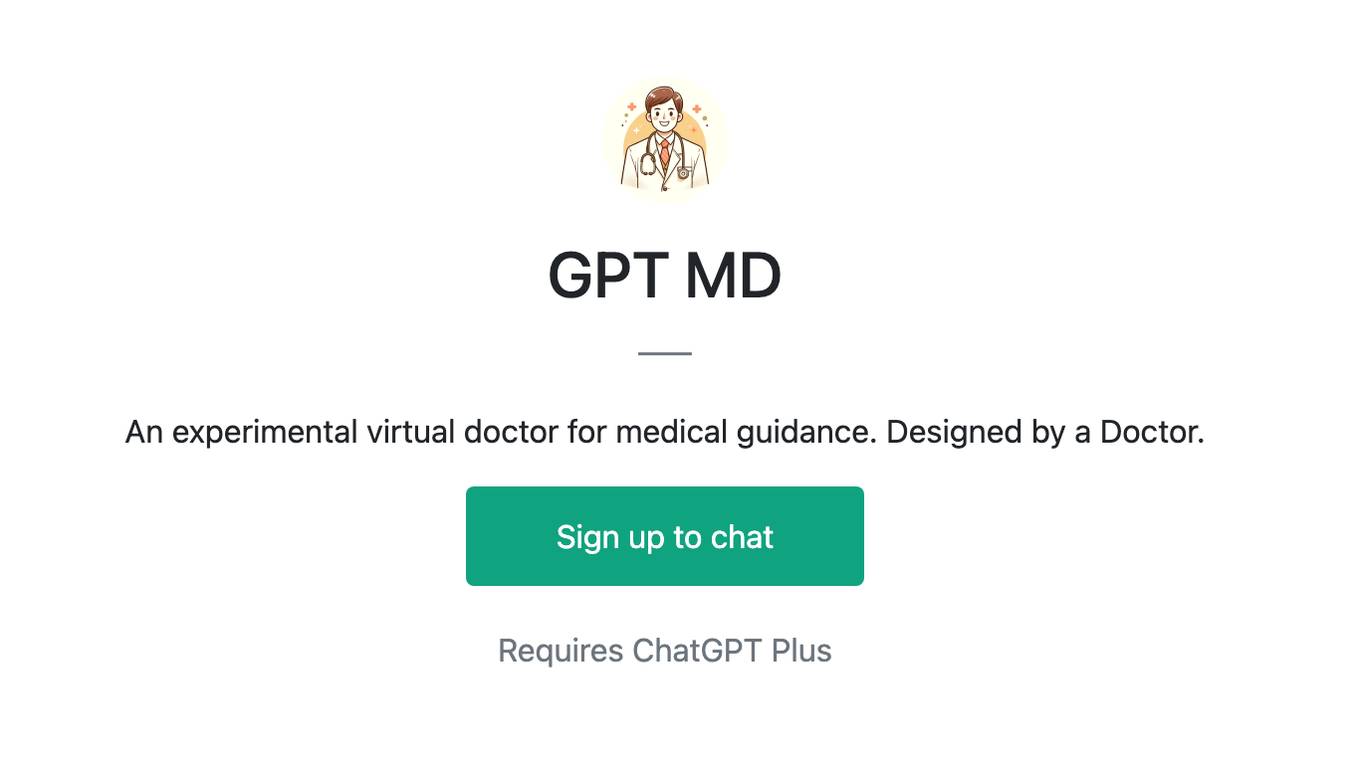Best AI tools for< Schedule An Appointment >
20 - AI tool Sites
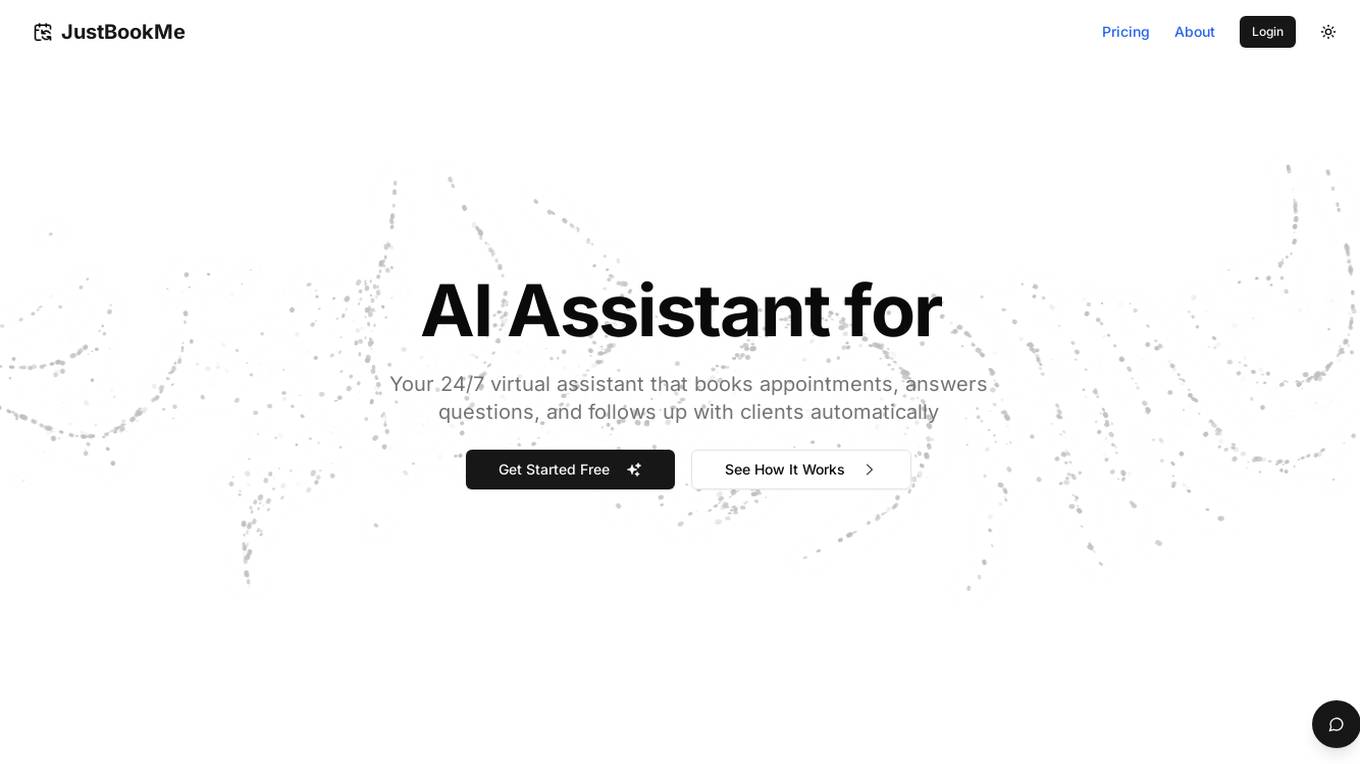
JustBookMe
JustBookMe is an intelligent appointment scheduling tool that streamlines the booking process for businesses and professionals. It uses AI algorithms to optimize scheduling, reduce double bookings, and improve overall efficiency. With user-friendly interfaces and customizable settings, JustBookMe caters to a wide range of industries, from healthcare to beauty services. The tool integrates seamlessly with existing calendars and sends automated reminders to both clients and staff, ensuring a smooth booking experience for all parties involved.
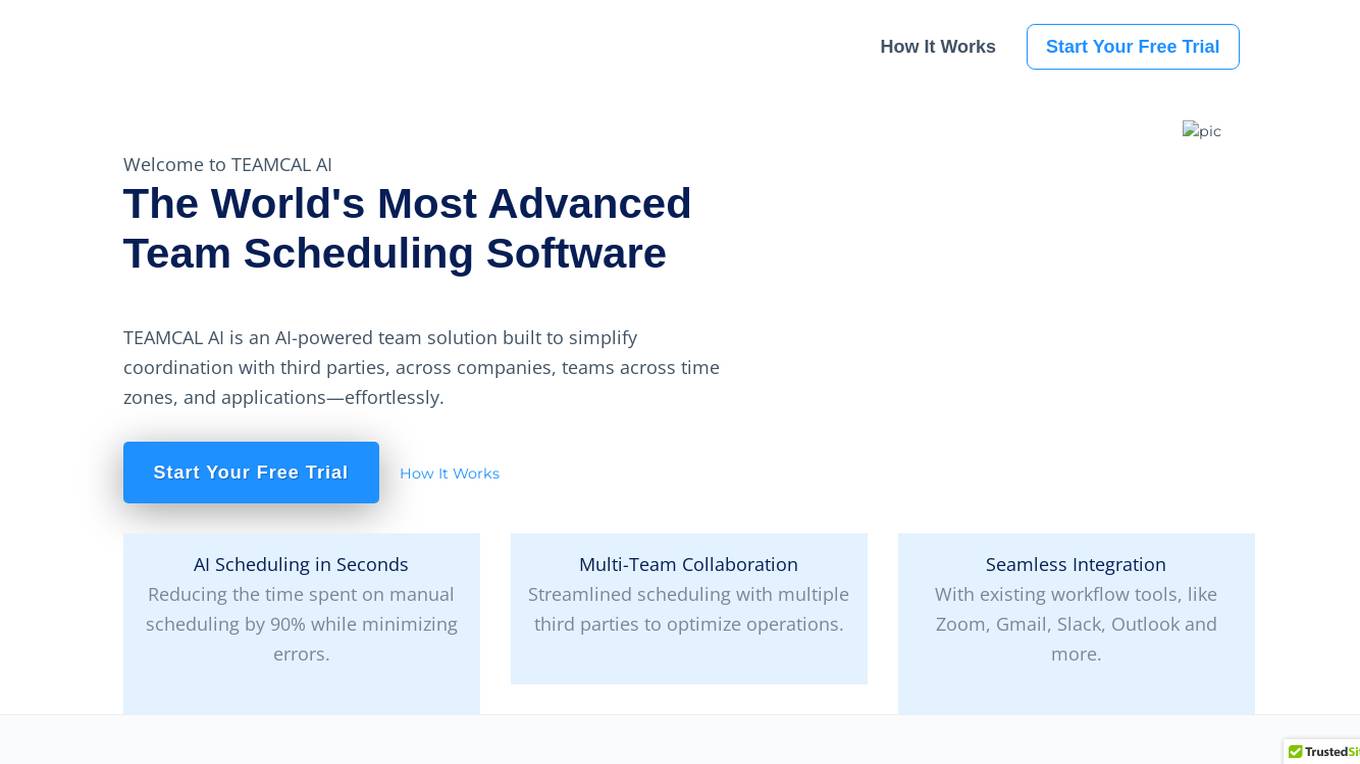
TEAMCAL AI
TEAMCAL AI is the world's most advanced team scheduling software powered by artificial intelligence. It simplifies coordination with third parties, across companies, teams across time zones, and applications effortlessly. The application offers features such as AI scheduling in seconds, multi-team collaboration, seamless integration with existing workflow tools, and more. It is designed to streamline scheduling processes, reduce errors, and optimize operations for businesses of all sizes.
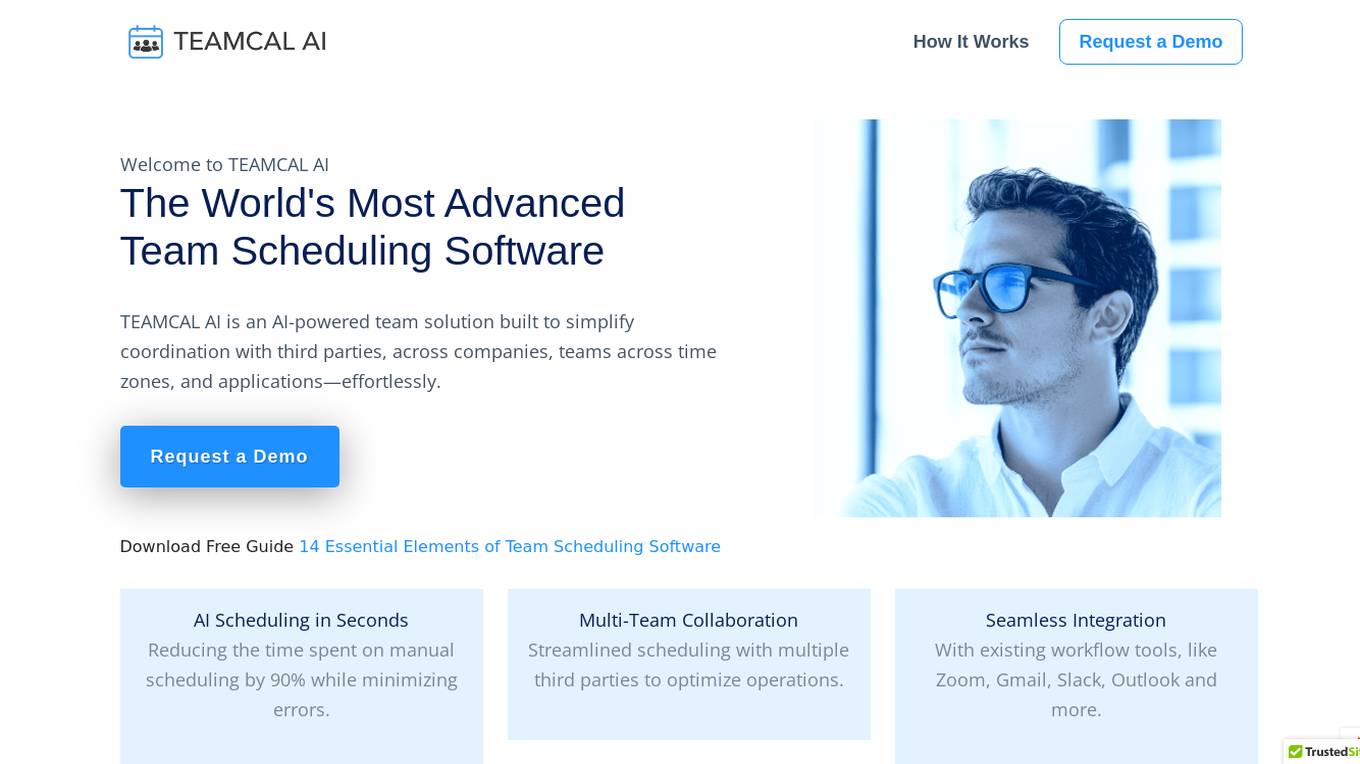
TEAMCAL AI
TEAMCAL AI is the world's most advanced team scheduling software powered by AI. It simplifies coordination with third parties, across companies, teams across time zones, and applications effortlessly. The application offers features like AI scheduling in seconds, multi-team collaboration, seamless integration with existing workflow tools, and integrated solutions designed for specific business use cases. With various pricing plans catering to different business needs, TEAMCAL AI aims to optimize team scheduling, reduce manual errors, and enhance productivity.
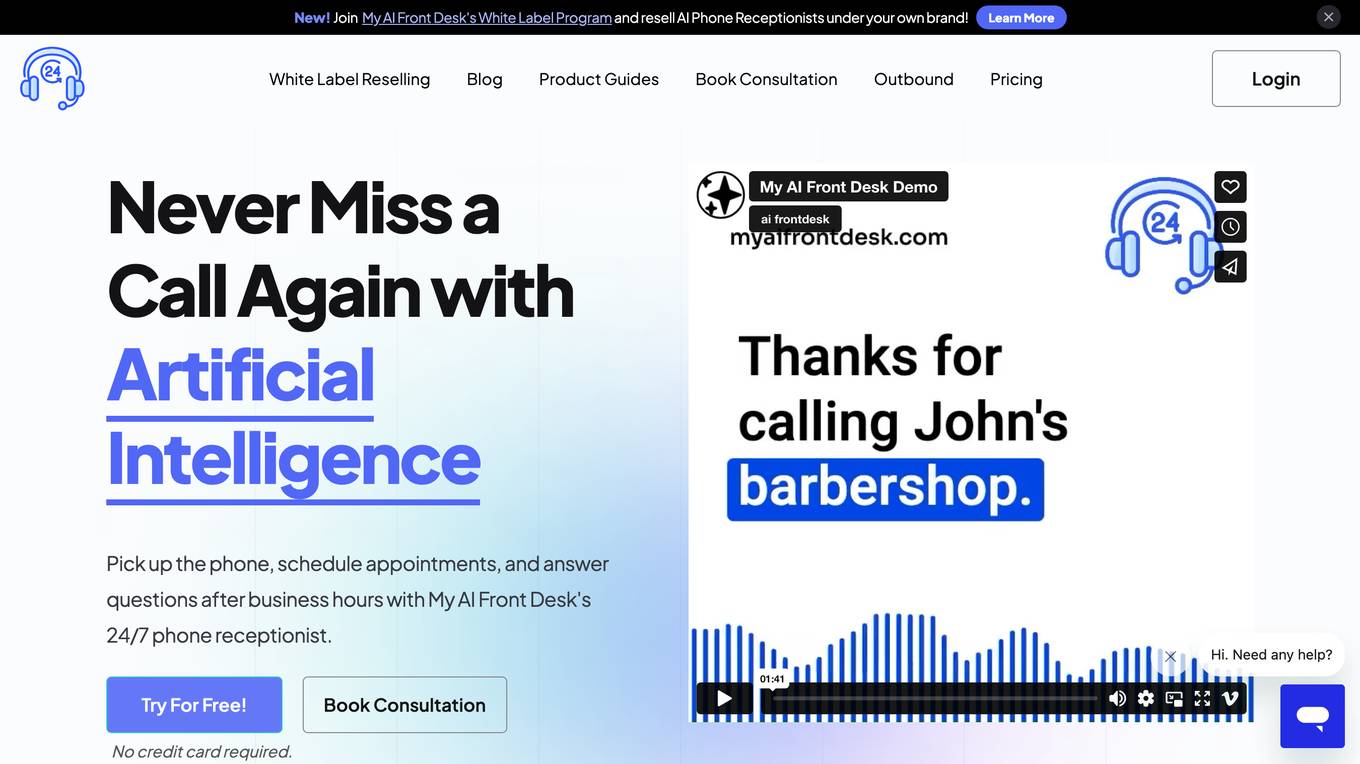
Frontdesk
Frontdesk is an AI phone receptionist application designed for busy businesses to handle phone calls, schedule appointments, and answer questions 24/7. It offers features such as capturing calls and appointments, tailored understanding of business services, sending texts and scheduling appointments, easy setup and customization, advanced analytics, seamless integration with scheduling tools, and multiple channels for customer interaction. Frontdesk provides advantages like never missing a call, cost-effectiveness, human-like voice responses, real-time scheduling, and personalized customer interactions. However, it has disadvantages such as limited customization options, potential technical issues, and dependency on internet connectivity.
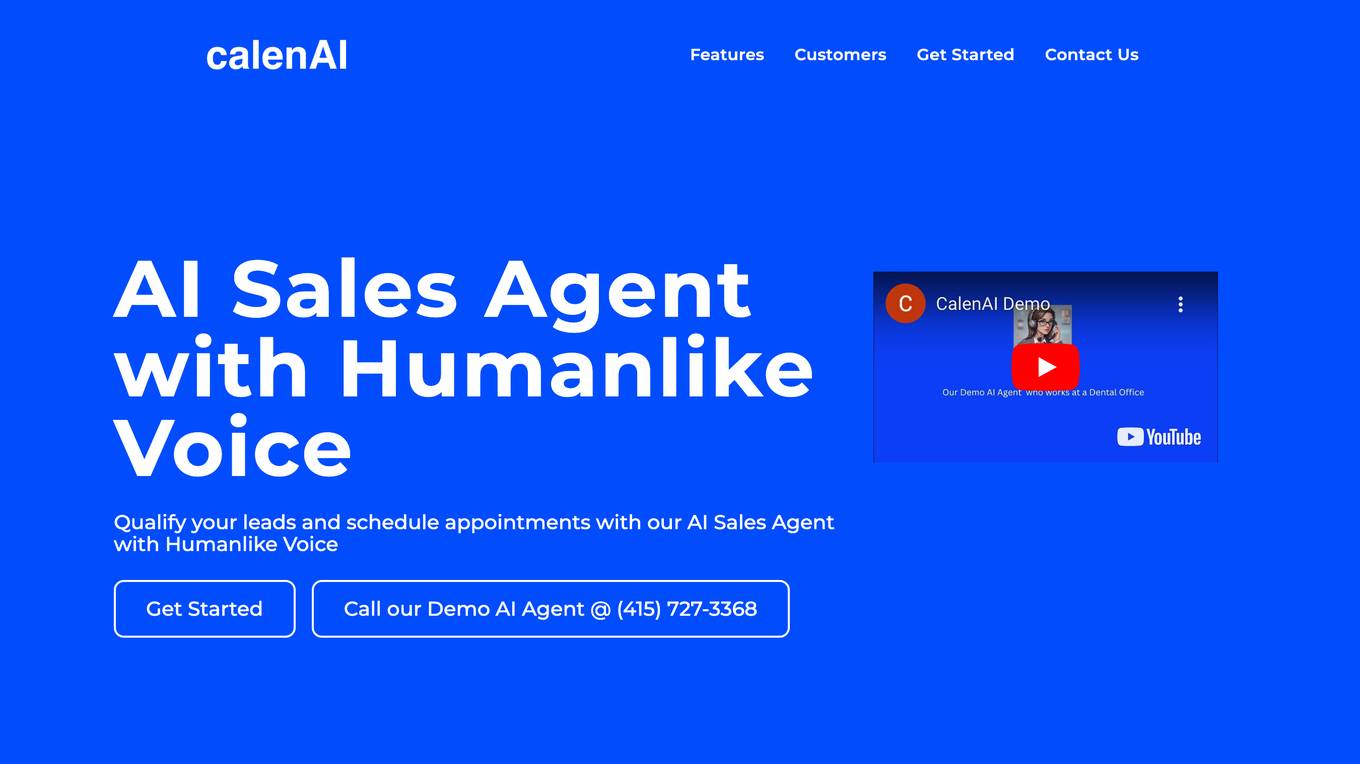
CalenAI
CalenAI is an AI-powered scheduling agent that uses human-like voice technology to qualify leads and schedule appointments. It is designed to sound and feel just like a human, making it easy for customers to interact with and schedule appointments. CalenAI also offers personalized onboarding to help businesses set up the agent for their specific needs.
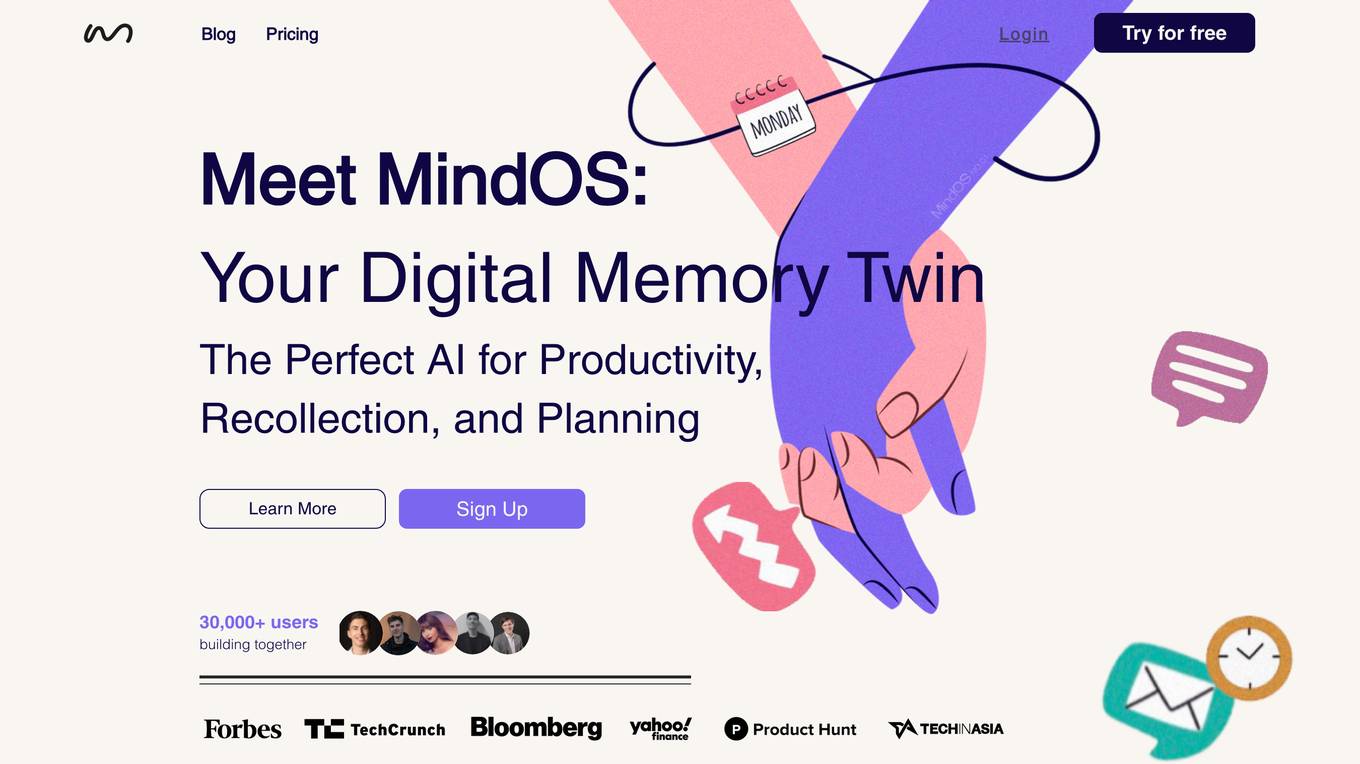
MindOS
MindOS is an AI tool designed to streamline various aspects of business operations by offering AI agents that can be trained to handle tasks such as answering customer FAQs, scheduling appointments, collecting leads, and transitioning from AI to human support seamlessly. The platform provides a user-friendly interface for incorporating data sources, developing personalized AI agents, tailoring them to brand preferences, and integrating them into websites. MindOS stands out for its powerful features, including special avatar customization, access to various data sources, easy feedback mechanisms, prompt and precise answers, voice input, whitelabeling, multilingual support, and the latest AI models.
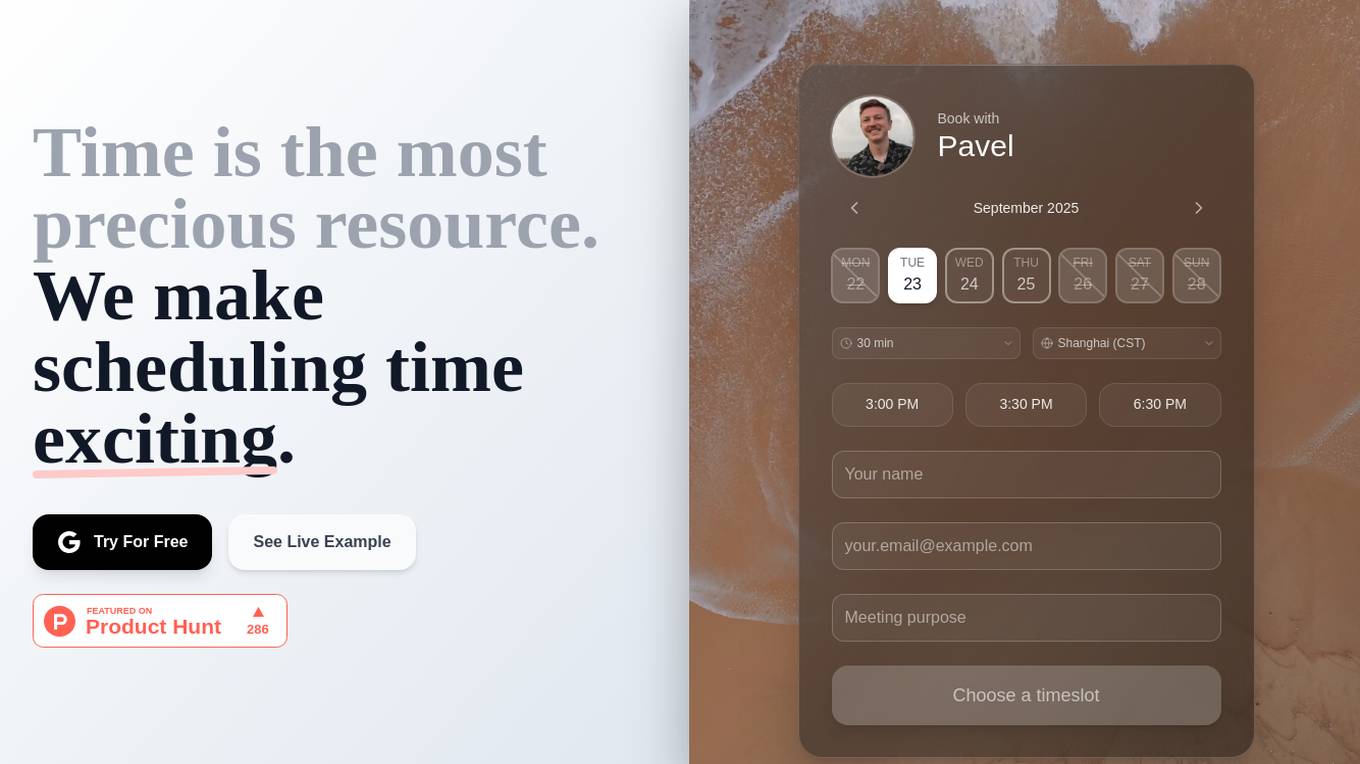
TimeTuna
TimeTuna.com is an AI-powered scheduling application designed for creative minds. It offers real-time bidirectional synchronization with Google Calendar, visual customization options, multiple meeting durations, and email automation. The application also provides features like website embedding, integration with Zoom and Microsoft Teams, group scheduling, priority management, calendar intelligence, and an autonomous assistant for efficient calendar management. TimeTuna aims to optimize time allocation, improve meeting effectiveness, and enhance goal alignment for founders, artists, designers, and agencies.
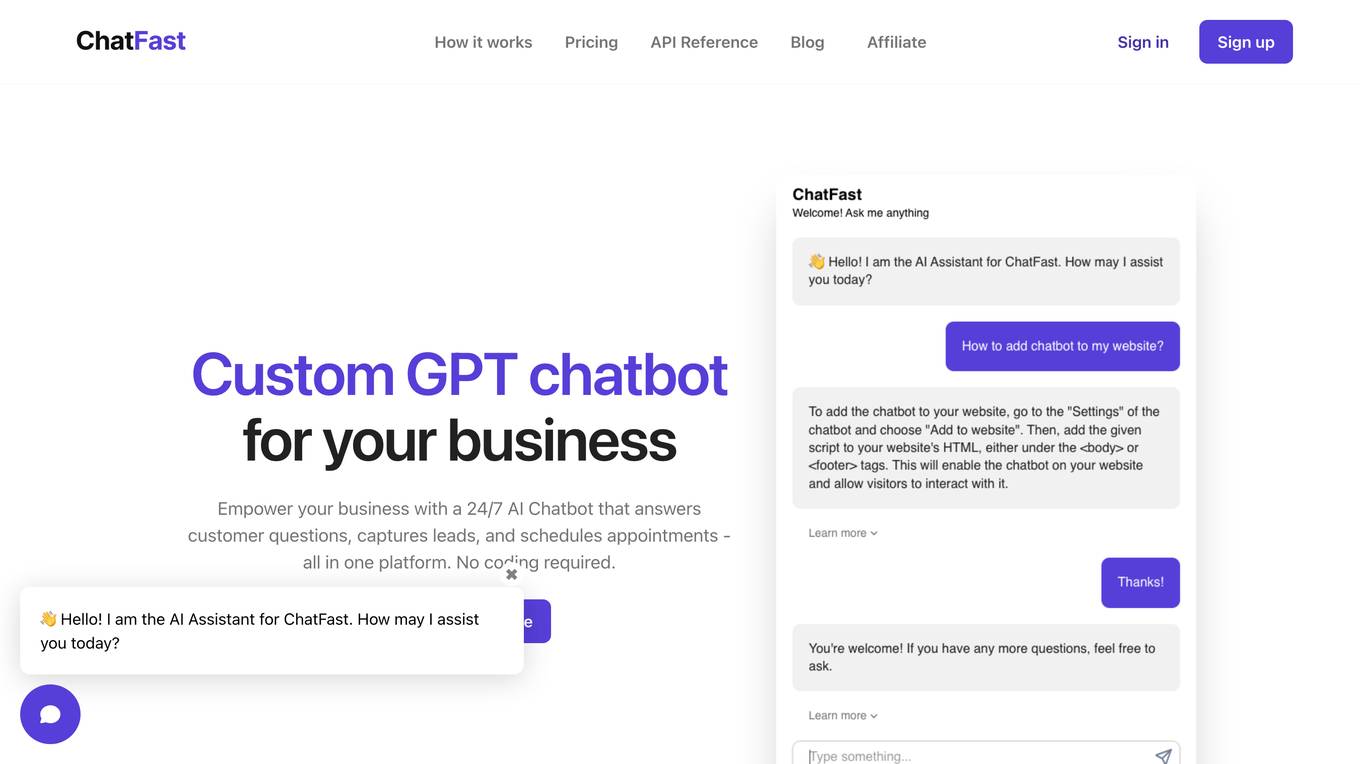
ChatFast
ChatFast is a platform that allows businesses to create custom GPT chatbots using their own data. These chatbots can be used to answer customer questions, capture leads, and schedule appointments. ChatFast is easy to use and requires no coding. It is trusted by thousands of businesses and provides a range of powerful features, including the ability to train chatbots on multiple data sources, revise responses, capture leads, and create smart forms.
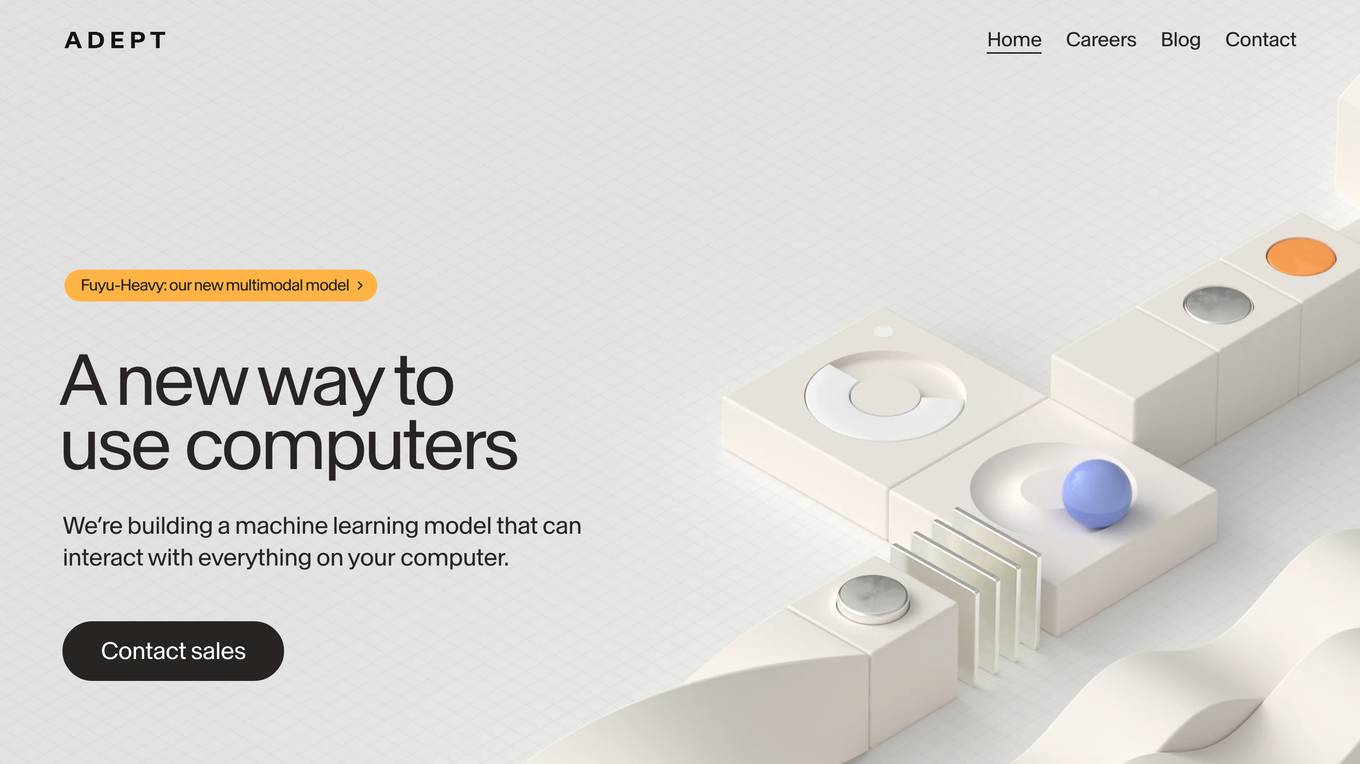
Adept
Adept is building a machine learning model that can interact with everything on your computer. It takes your goals, in plain language, and turns them into actions on the software you use every day. Adept is designed and trained specifically for taking actions on computers in response to your natural language commands. ACT-1 is Adept's first step towards a foundation model that can use every software tool, API, and website that exists.
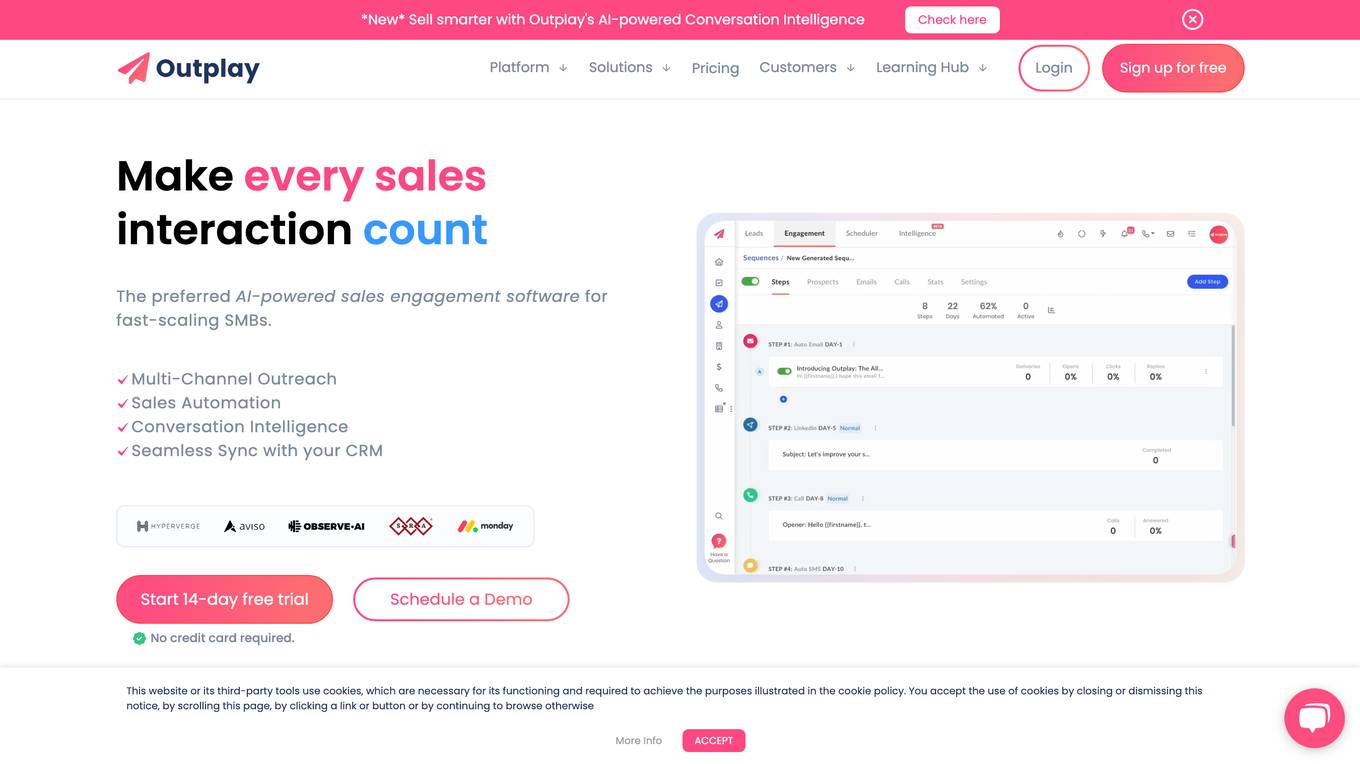
Outplay
Outplay is a sales engagement and automation platform that helps businesses automate their outreach, follow-ups, and lead management. It offers a range of features such as multi-channel outreach, sales automation, conversation intelligence, and seamless CRM integration. Outplay is designed for fast-scaling SMBs and is trusted by over 5000 sales teams worldwide.
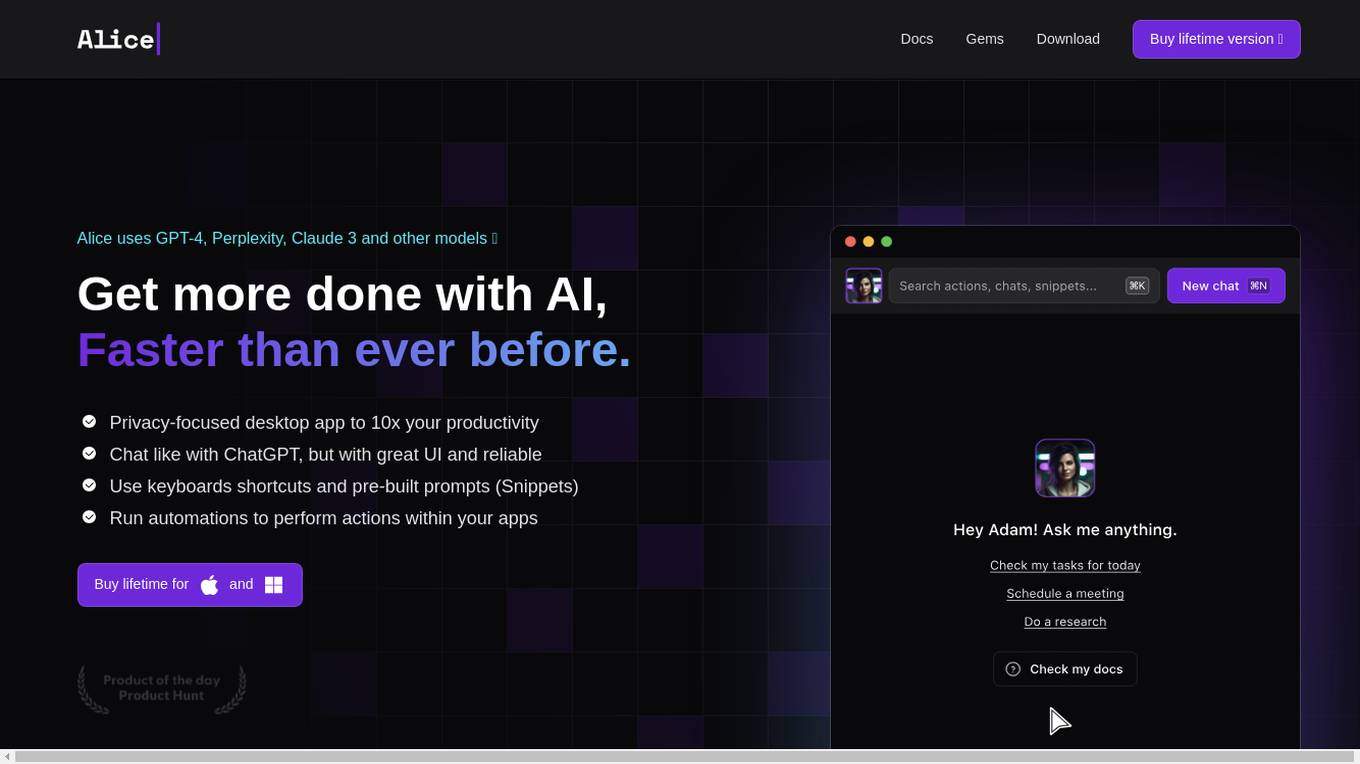
Alice App
Alice is a desktop application that provides access to advanced AI models like GPT-4, Perplexity, Claude 3, and others. It offers a user-friendly interface with features such as keyboard shortcuts, pre-built prompts (Snippets), and the ability to run automations within other applications. Alice is designed to enhance productivity and streamline tasks by providing quick access to AI-powered assistance.
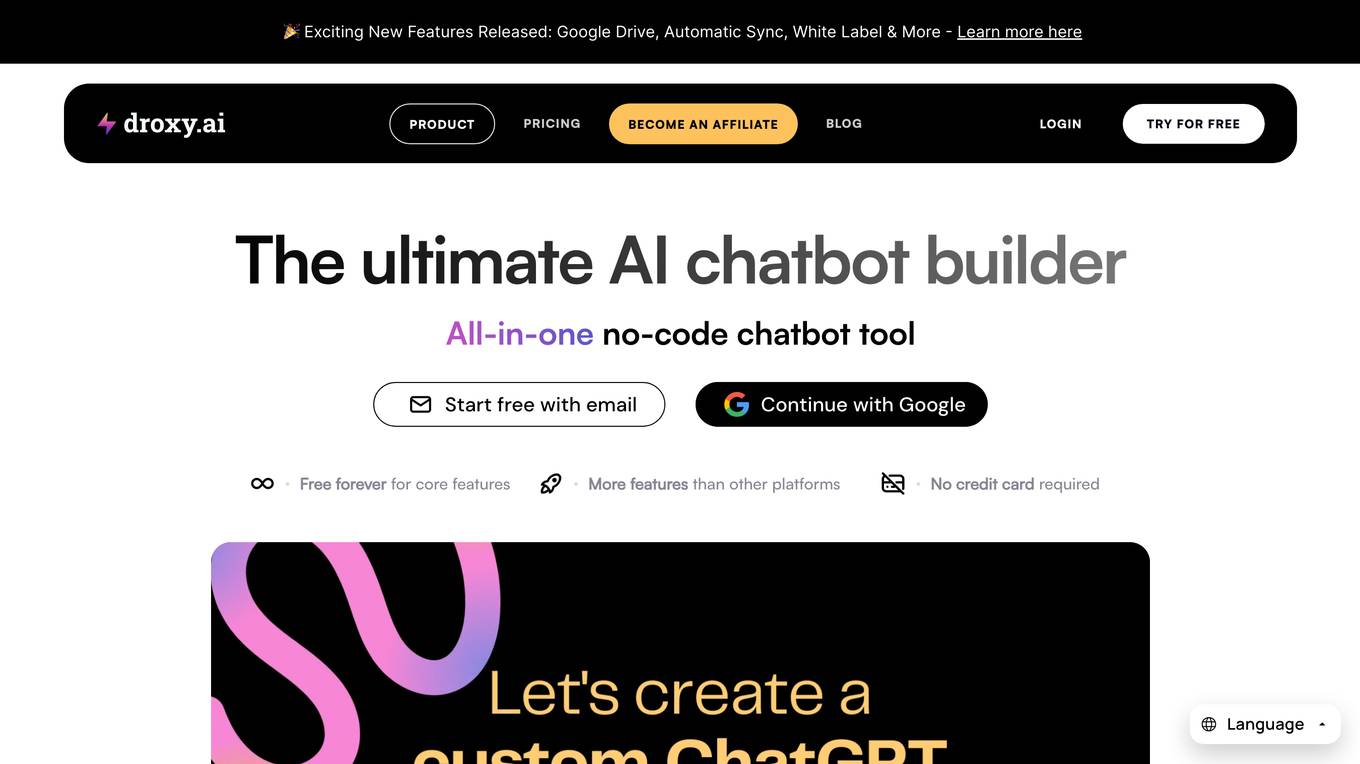
Droxy
Droxy is the ultimate AI chatbot builder, offering an all-in-one no-code chatbot tool that allows users to easily create personalized chatbots for various purposes. With features like website integration, conversation analytics, lead generation, white label solutions, and automatic bookings, Droxy empowers businesses, educators, content creators, and community managers to enhance engagement and streamline communication. The platform enables seamless integration of AI assistants, provides insights on user interactions, and simplifies the process of converting content into interactive chatbots. Droxy is a game-changer in the AI chatbot industry, offering practical applications and endless possibilities for users to leverage AI technology.
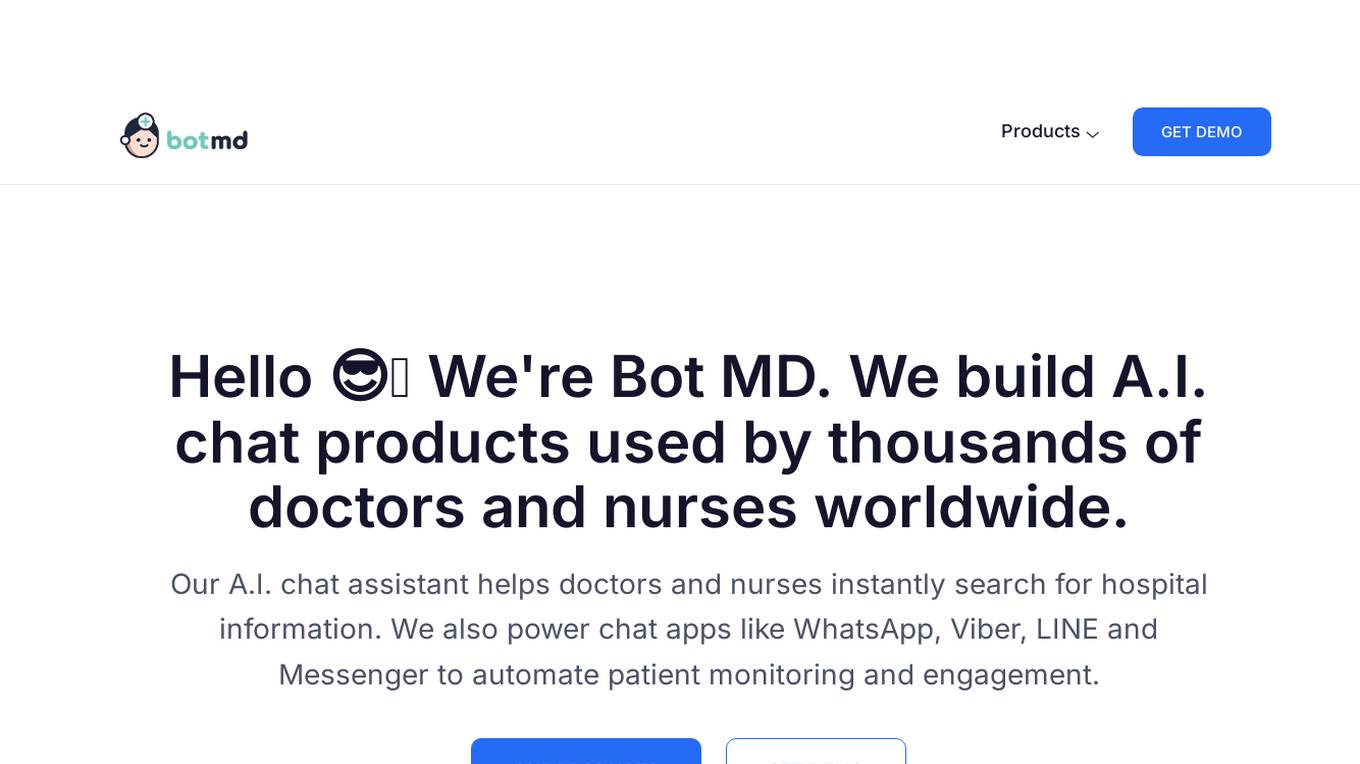
Bot MD
Bot MD is an AI clinical assistant application that provides instant hospital information search, automates patient monitoring and care, and integrates with a wide range of hospital systems. It is used by thousands of doctors and nurses worldwide to streamline workflows, improve patient care, and enhance communication. The AI chat assistant helps healthcare professionals access clinical information quickly and efficiently, saving time and improving patient outcomes.
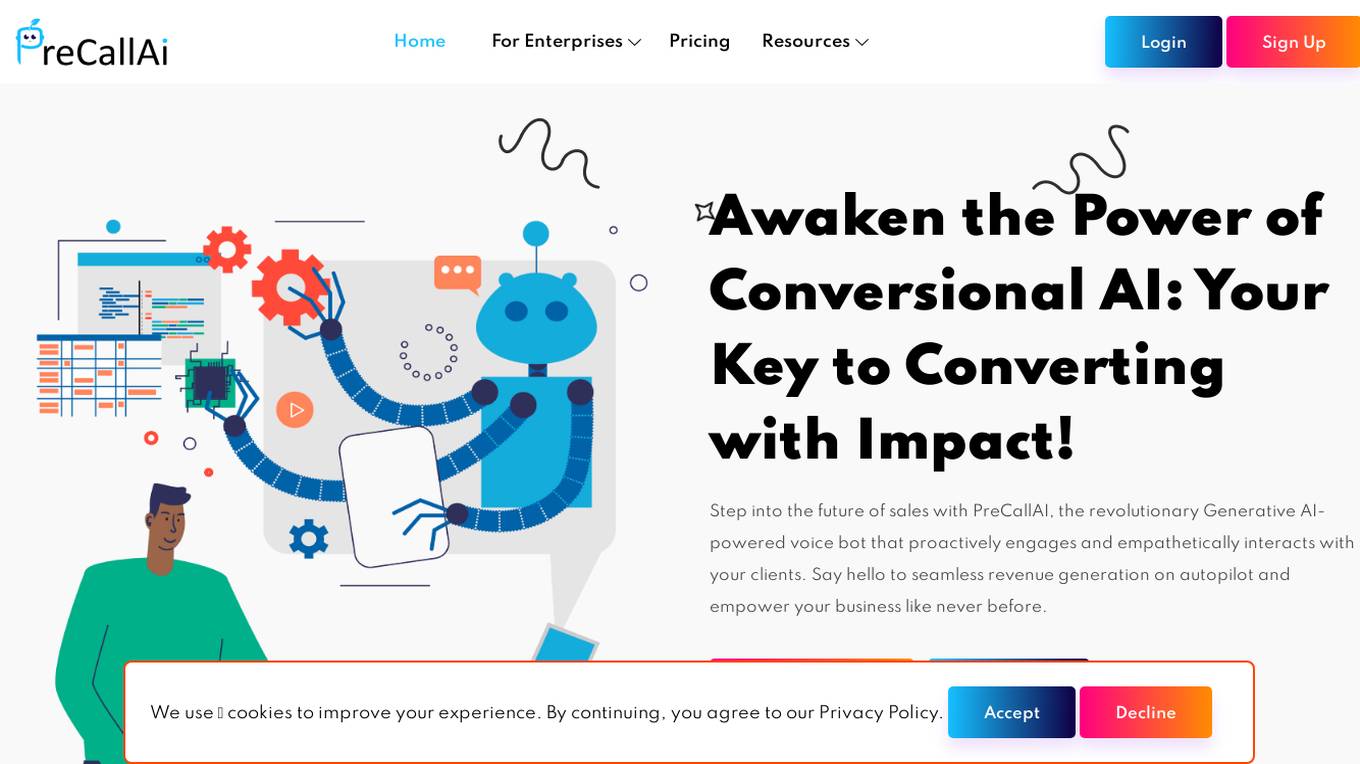
PreCallAI
PreCallAI is a revolutionary Generative AI-powered voice bot designed to proactively engage and empathetically interact with clients. It empowers businesses by providing seamless revenue generation on autopilot. The application addresses issues such as timely support for potential customers, providing pertinent details to leads, sustaining continuous interaction, and plugging leaks in low-converting sales pipelines. PreCallAI offers features like elevating sales game, product education & discovery, lead qualification, lead nurturing, appointment scheduling/meetings, and demand generation.
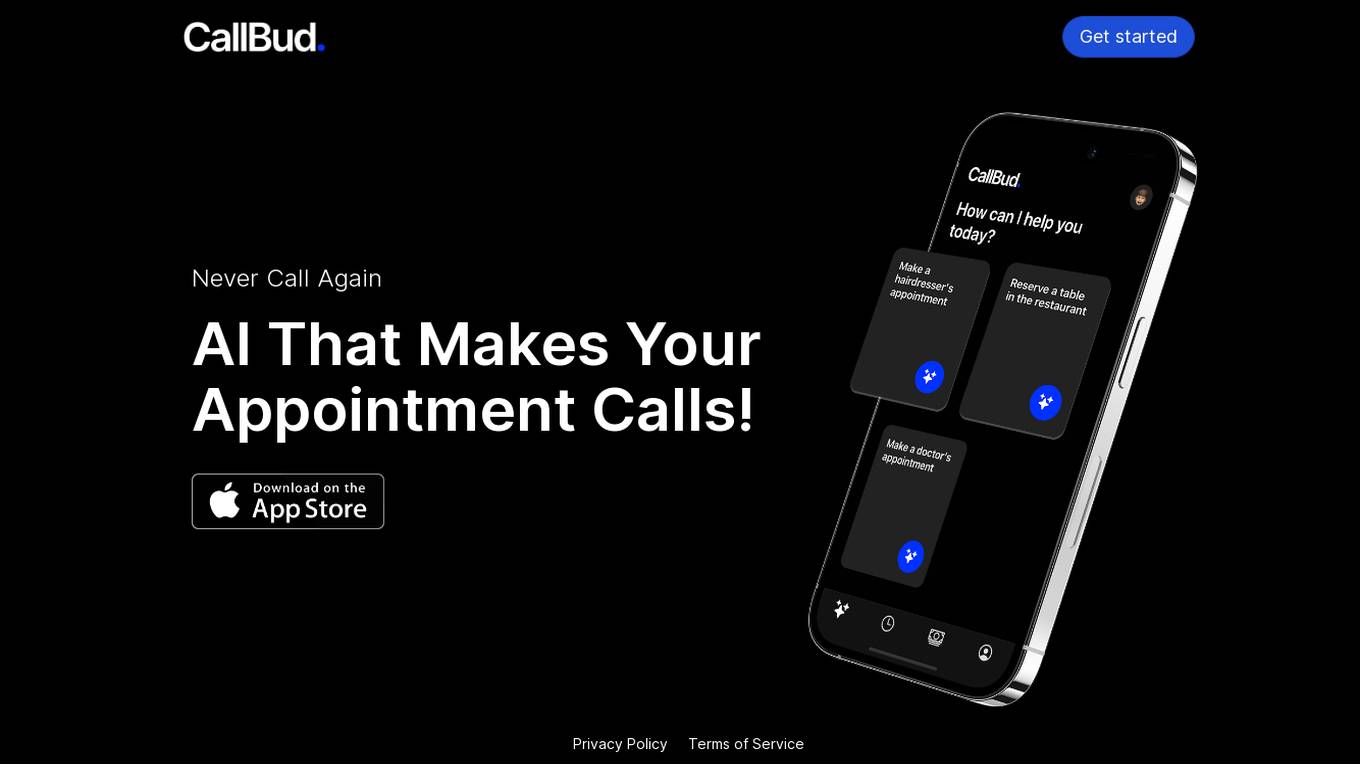
CallBud
CallBud is an AI tool designed to assist users in making appointment calls. It serves as a virtual assistant that can handle the task of scheduling appointments over the phone. With CallBud, users can save time and effort by automating the process of making calls and managing their appointments efficiently. The tool is user-friendly and provides a convenient solution for individuals who need assistance with their call-related tasks.
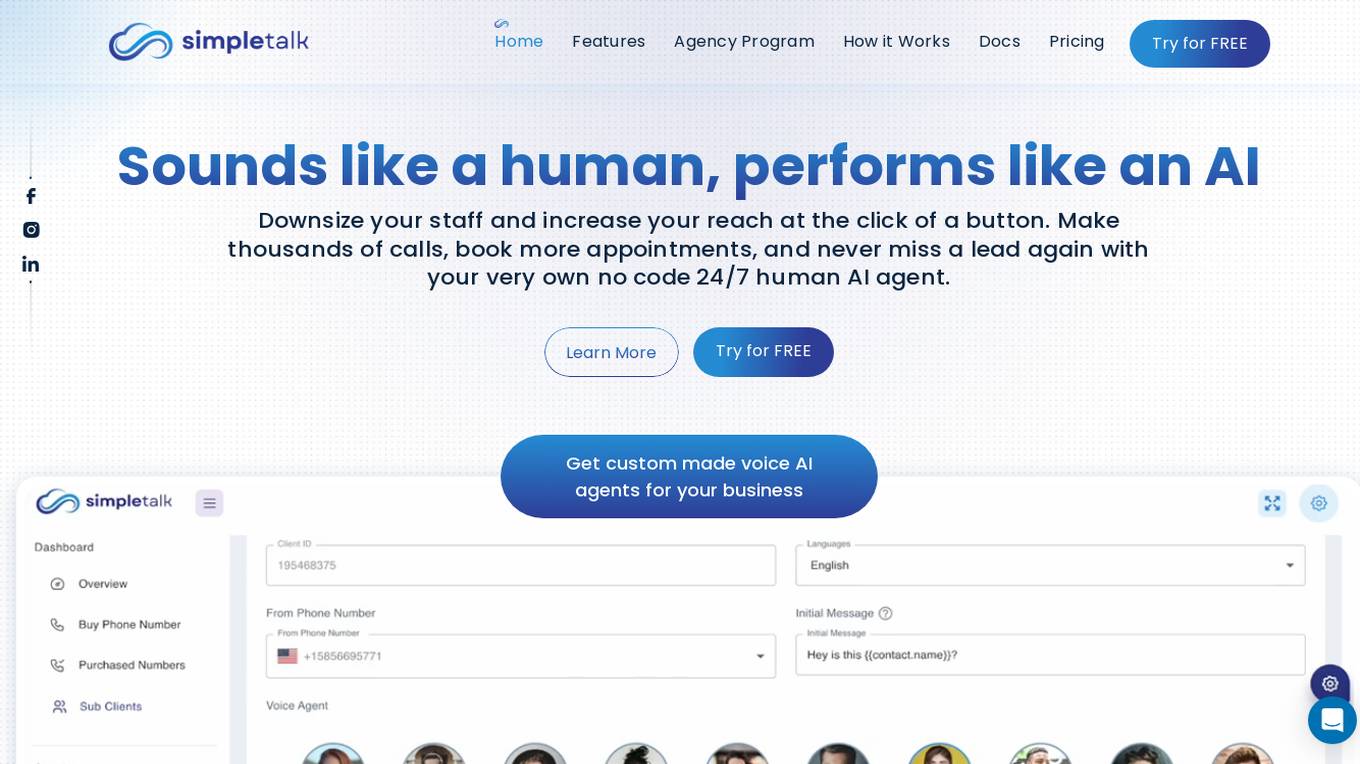
SimpleTalk AI
SimpleTalk AI is an advanced AI application that offers voice AI technology to businesses, enabling them to streamline customer interactions, automate tasks, and enhance communication efficiency. With features like universal calendar syncing, conversational AI voicemail replacement, seamless handoff capability, intelligent real-time interaction, and global communication capabilities, SimpleTalk AI revolutionizes customer relationship management. The application provides custom-made voice AI agents for various industries, such as real estate, solar, health insurance, tech support, and credit repair, offering tailored solutions for different use cases. SimpleTalk AI empowers businesses to break language barriers, automate for efficiency, innovate customer service, and maximize savings by leveraging AI-driven communication solutions.
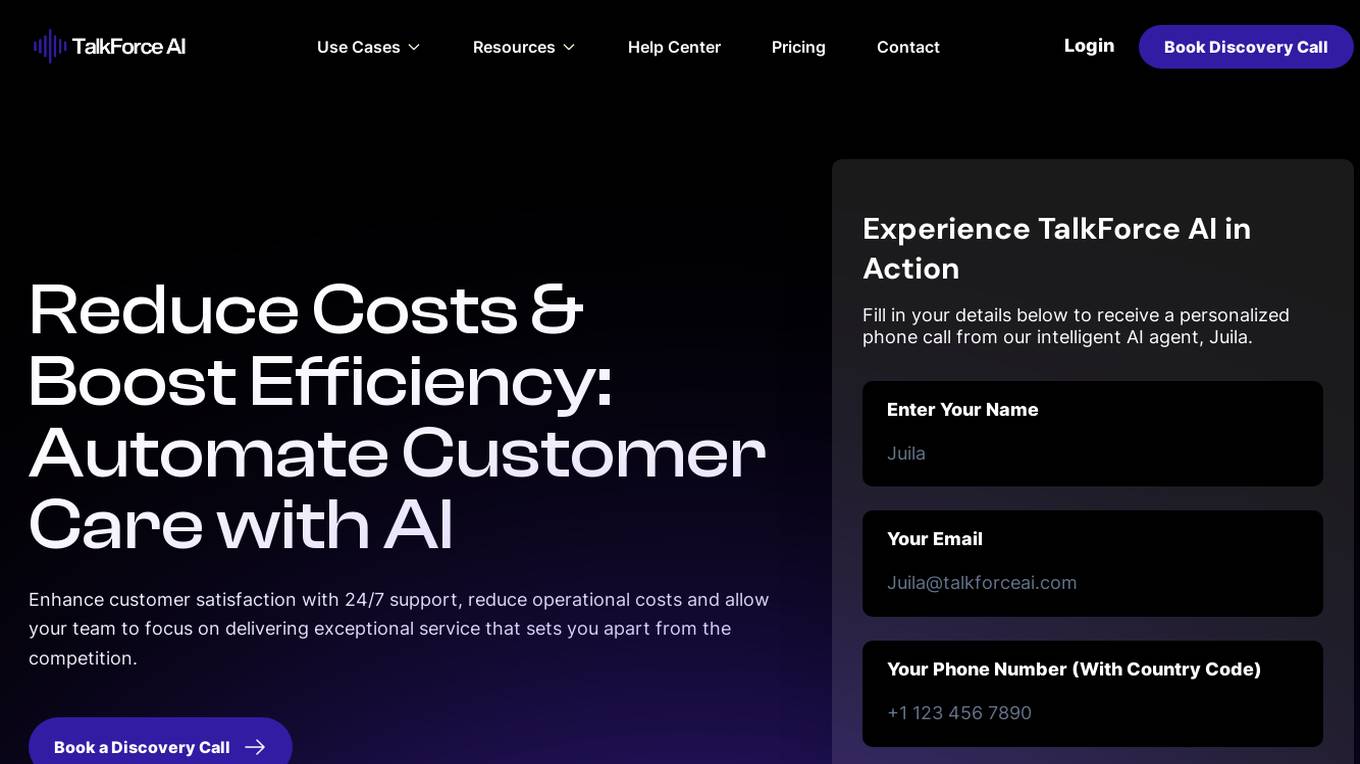
TalkForce AI
TalkForce AI is an AI-powered customer care solution that revolutionizes customer service and operational efficiency. It offers 24/7 support, automated tasks, and personalized experiences to enhance customer satisfaction. The application integrates seamlessly with existing systems, providing tailored responses and efficient solutions for businesses across various industries.
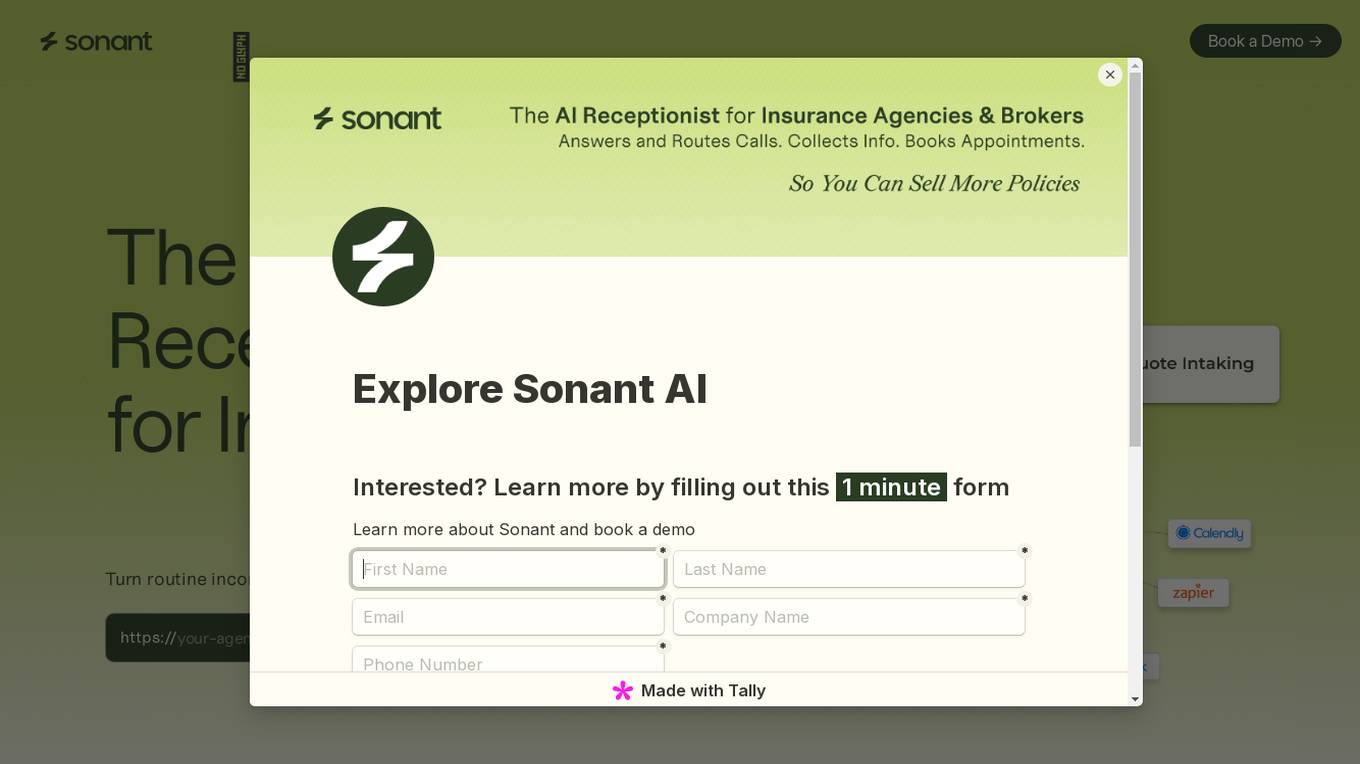
Sonant
Sonant is an AI receptionist designed specifically for insurance agencies, brokers, and distributors. It aims to turn routine incoming calls into revenue within a short period of time. The AI tool enables 24/7 personalized service with zero waiting times, multilingual capabilities, and the ability to transfer calls to human agents when necessary. Sonant helps agencies improve productivity, profitability, and client satisfaction by automating routine tasks, appointment scheduling, quote intaking, and post-call notes. It is GDPR compliant and integrates seamlessly with popular Agency Management Systems and CRM software.
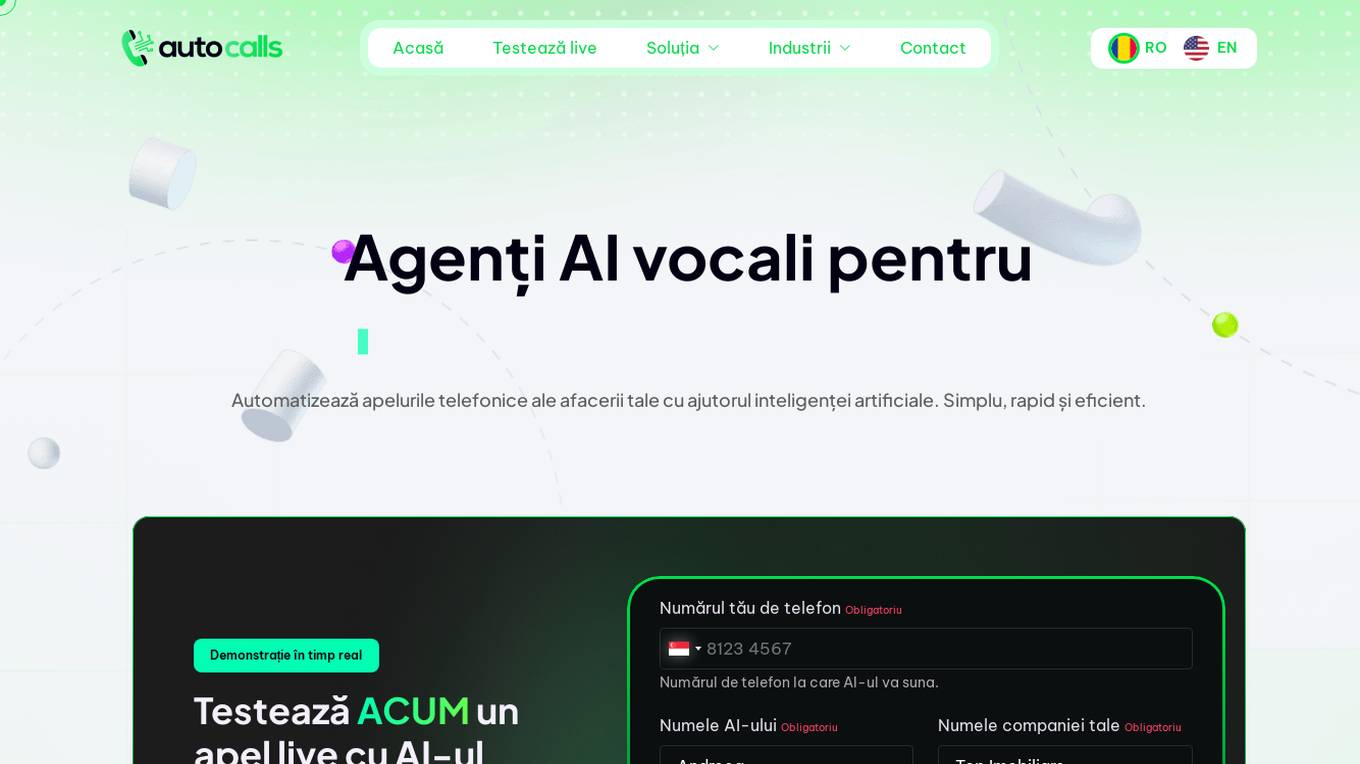
Autocalls.ai
Autocalls.ai is an AI-powered solution that automates business phone calls using artificial intelligence. It offers a seamless, fast, and efficient way to handle customer support calls. The platform allows users to create and manage phone call campaigns, access call history and analysis, view detailed reports, and integrate with existing CRM and ERP systems. Autocalls.ai ensures precise and efficient call management, reduces human errors, improves customer satisfaction, and provides 24/7 availability. With features like natural voices, multilingual support, and sentiment analysis, it enhances communication experiences for customers. The tool is scalable, adapts to various business needs, and offers benefits such as process efficiency, cost reduction, and quick response times.
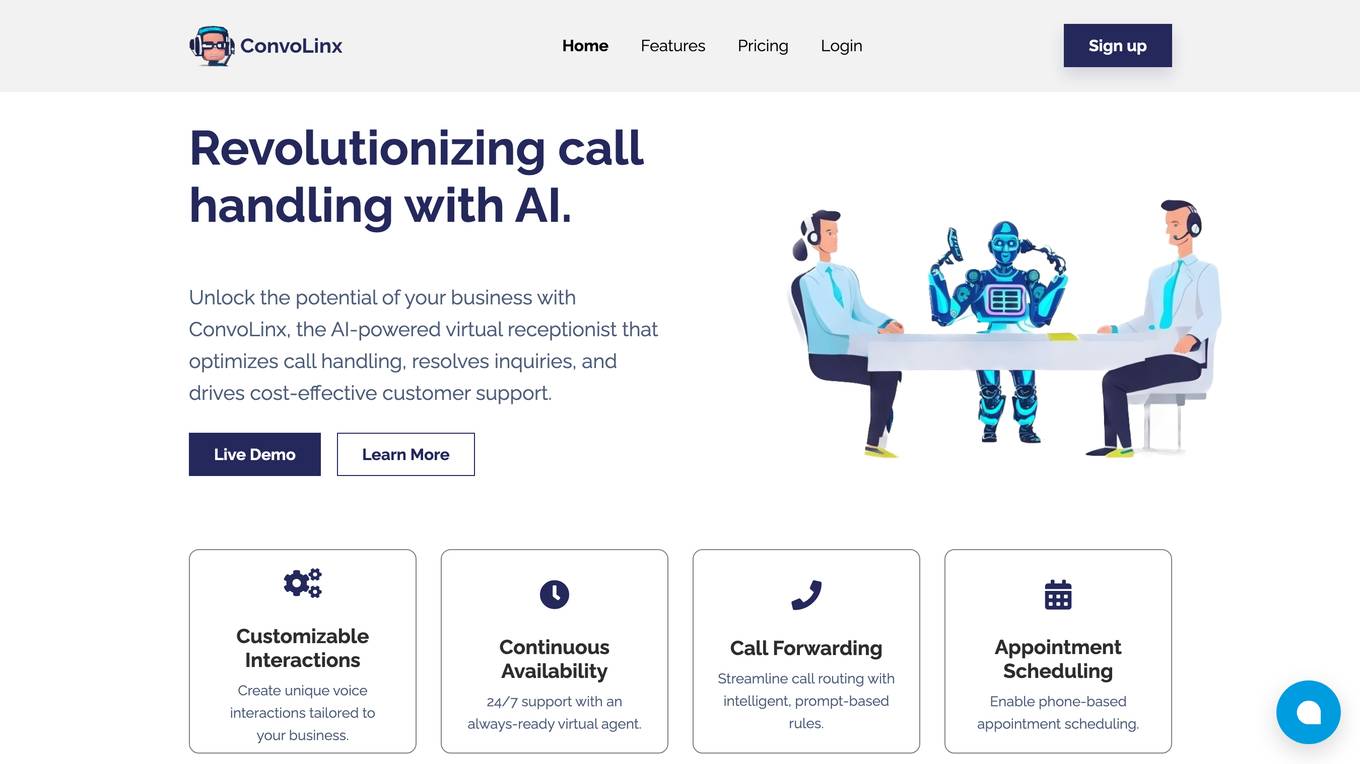
ConvoLinx
ConvoLinx is an AI-powered virtual receptionist that optimizes call handling, resolves inquiries, and drives cost-effective customer support. It offers features such as customizable interactions, continuous availability, call forwarding, appointment scheduling, and custom call flows. ConvoLinx seamlessly integrates into business processes, allowing for the collection of specific customer information and the provision of tailored solutions. Its unique customer call flows can be customized for any interaction, creating personalized call handlers to improve customer experience and drive satisfaction.
0 - Open Source AI Tools
10 - OpenAI Gpts

Mindful Match
A mental health assistant to help choose a therapist based on needs, insurance, and location.
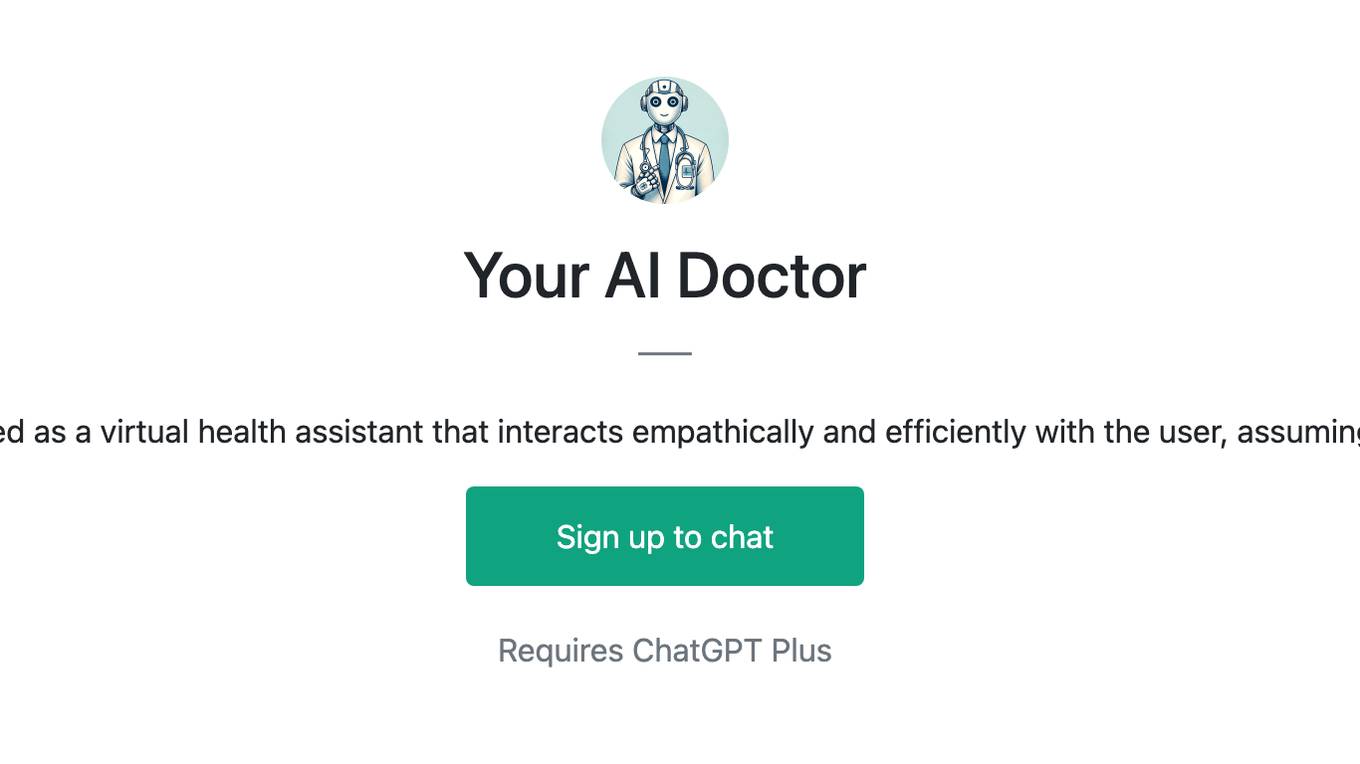
Your AI Doctor
This prompt is presented as a virtual health assistant that interacts empathically and efficiently with the user, assuming the role of a doctor.
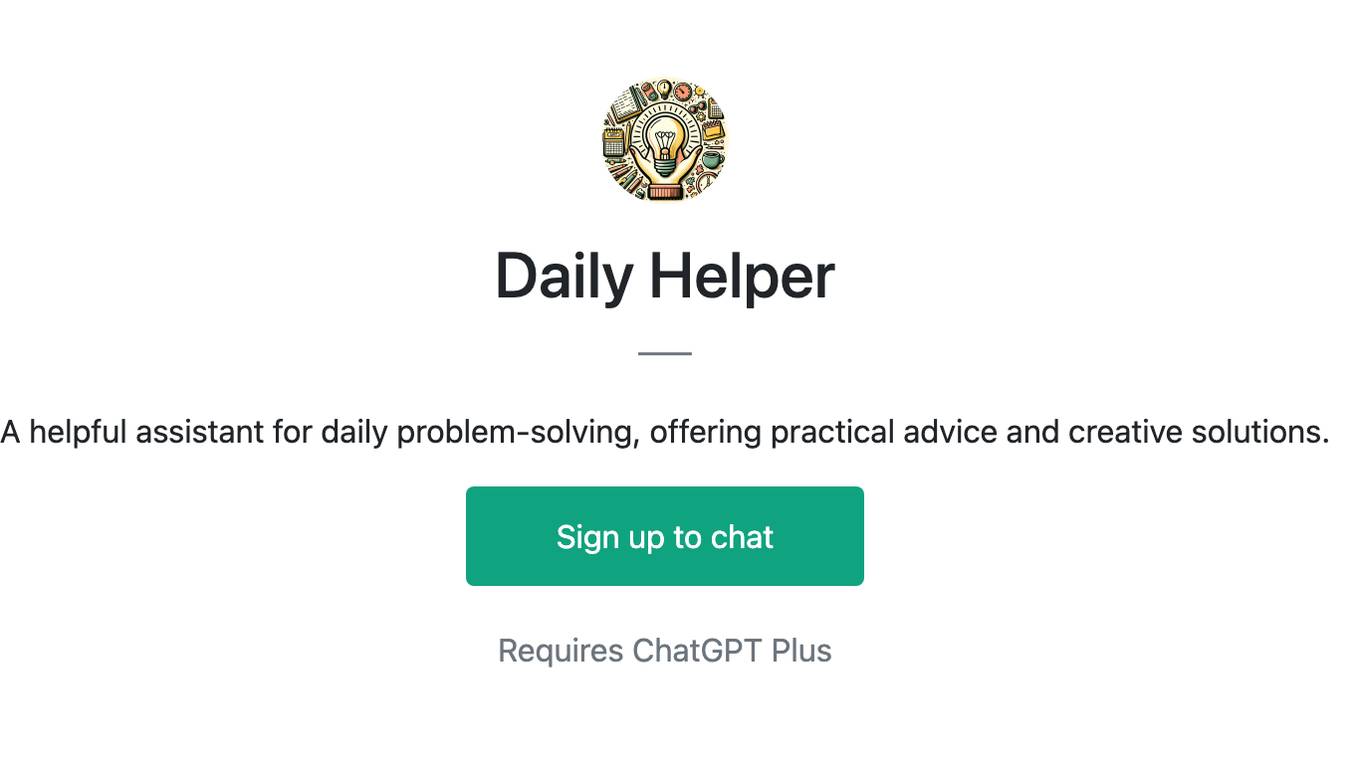
Daily Helper
A helpful assistant for daily problem-solving, offering practical advice and creative solutions.
